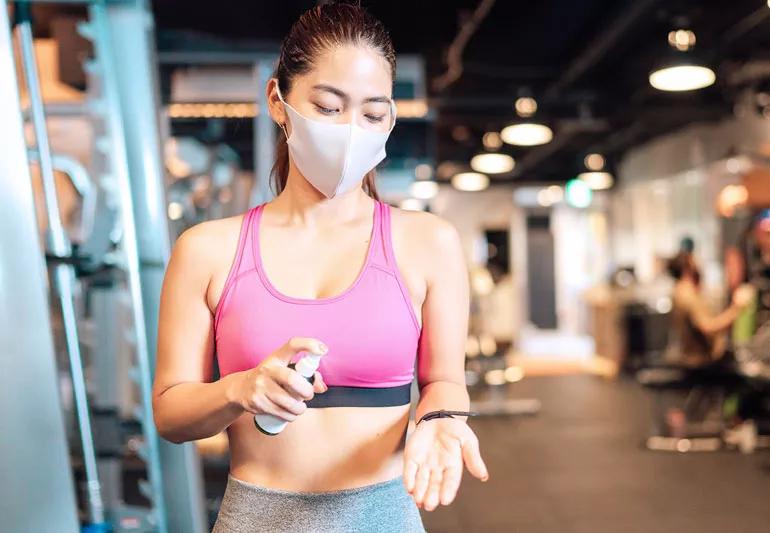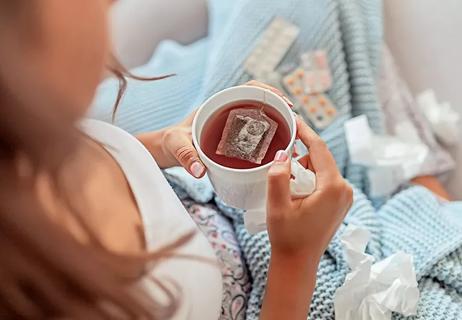Best practices for avoiding gym germs

There’s many reasons why exercise and going to the gym is good for us. But now (more than ever) if we’re not following the proper guidelines to stop the spread of germs, our well-meaning habit could end up hurting our health and those around us.
Advertisement
Cleveland Clinic is a non-profit academic medical center. Advertising on our site helps support our mission. We do not endorse non-Cleveland Clinic products or services. Policy
So how do we reduce our risk of illness and keep each other safe at the gym this cold and flu season? (And also in the middle of a global pandemic!) Sports medicine specialist Caitlin Lewis, MD, gives these tips for avoiding gym germs and staying healthy.
Advertisement
Many people will soon head back indoors to gyms when the weather breaks for fall and winter, potentially making it more crowded than it may have been in the spring and summer.
“If you can, I would recommend trying to exercise outdoors for as long as possible,” says Dr. Lewis. “Or find an at-home program you enjoy and can stick with.”
If you’re feeling sick (especially this year), just stay home. Cold and flu season mixed with the COVID-19 pandemic is a threat to everyone and your daily workout isn’t worth putting other people’s health at-risk.
Missing a day or two at the gym isn’t going to undo all your hard work or cause you to lose your gains either. In fact, allowing your body to rest and recover could help you bounce back quicker than just trying to power through.
That being said, some people feel better after a good sweat sesh, especially if they’re congested or their sickness is very mild. The increased blood flow and movement can sometimes do the body good. In these instances, Dr. Lewis recommends playing it safe and choosing an at-home workout or walking or running outside in a non-crowded area. You’ll want to pay attention to how you’re feeling and modify the workout if you become fatigued or feel worse than before.
We’re still learning about COVID-19’s long-term implications, especially when it comes to the heart and athletes, says Dr. Lewis. So if you’re diagnosed with the virus, you’ll need to check with your doctor once you recover for a graduated return to exercise program. Your doctor will work with you to ensure your heart and lungs have recovered and it’s safe for you to return to the gym or training.
Still, it’s even more crucial this year to get your flu shot to help fend off illness.
Advertisement

Sign up for our Health Essentials emails for expert guidance on nutrition, fitness, sleep, skin care and more.
Learn more about our editorial process.
Advertisement

They can feel similar, but the differences matter — especially if you’re at higher risk for complications

From washing your hands and disinfecting surfaces to boosting your immune health, there are many ways to reduce your flu risk

The two main strains of the flu have a lot in common, but type A causes more cases and more severe illness than type B

Pasteurized milk is considered safe, but there are concerns about avian influenza spreading through raw, unpasteurized milk

The flu can make kids seriously sick, so watch for signs of dehydration and breathing problems

Tamiflu can shorten your child’s illness and even help prevent the flu

You may be spreading the flu virus before your symptoms start and up to a week after

While it typically starts in October, vaccine effectiveness can affect its duration and severity

Even small moments of time outdoors can help reduce stress, boost mood and restore a sense of calm

A correct prescription helps your eyes see clearly — but as natural changes occur, you may need stronger or different eyeglasses

Both are medical emergencies, but they are very distinct events with different causes